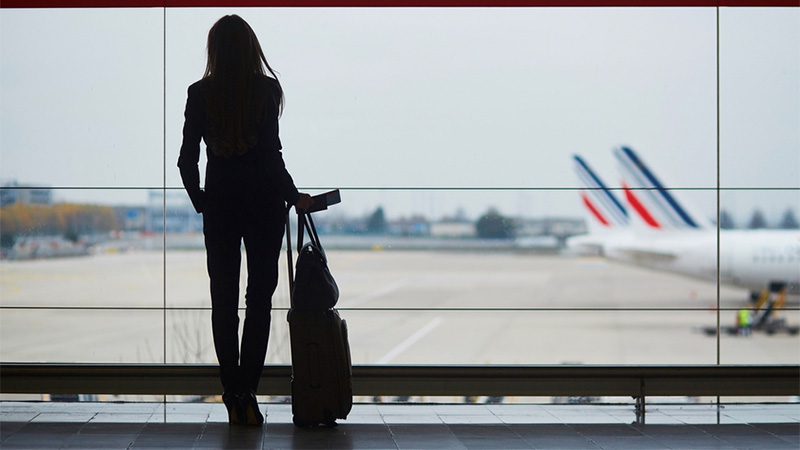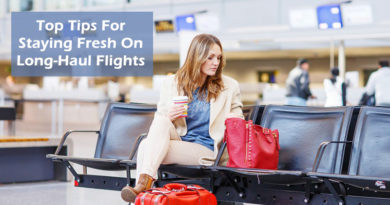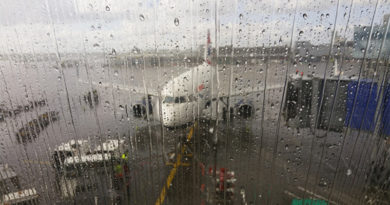Business travel and sleep deprivation: How to avoid fatigue
Being on business travel requires you to be on top of your game while in the midst of hectic schedules, less time eating before bed, pressure, and late evening meeting, which are all recipe for fatigue and lack of sleep. Because of that, you may experience all sorts of uncomfortable symptoms such as insomnia, upset stomach, mental exhaustion, and the likes.
The further you travel, the greater the likelihood that you’ll have jet lag. Traveling in different time areas can mess up your internal rhythms. For instance, when you arrived in Geneva for your conference, your body thinks that you’re still in New York.

Moreover, being fatigue while on business travel can only worsen the situation. The shift in time zones while addressing the challenges in the environment can make you feel anxious about your performance. This can even affect you when you get home. The thing is you can follow these tips and tricks to offset the negative impacts of fatigue and sleep deprivation while traveling.
Plan your flight strategically
As much as possible, book for a flight that will arrive during the day. Exposure in daylight can tempt you to stay awake and allow you to adjust at the local time. Also, if you plan to stay up for dinner and head to bed before 11 pm, you can choose flights that will arrive in the early evening. If you can, avoid early morning flight arrival can be challenging for you have to remain awake for the whole day. Another flight that you should avoid is those with long stopovers where you’re just waiting at the airport for your next flight.
Before arriving at your destination, plan what you’re going to do once you get there. Decide whether you’re going directly to the hotel or find a place to eat first. Search for recommended local restaurants and sights to keep you busy until you have an appropriate time to sleep. If you take a power nap when you arrived at your hotel, don’t forget to set your alarm so that you can avoid oversleeping.
Consider taking melatonin
Lack of sleep is one of the common problems among travelers of all ages. To overcome this, melatonin can help you control your circadian rhythm or 24-hour cycle. You can take 0.5 to 5 mg of melatonin two to three hours before the local bedtime to enhance your sleep quality at night and heighten up your alertness during the day.
Before leaving, you can incorporate the melatonin routine for three days so it will be easier for you to adjust to the new time zone.
While still at home, bring the melatonin in the fresh setting for two to three hours before what’s going to be your future bedtime. This will assist adjust your body to the fresh rhythms.
For health care assistance, consult your doctor about melatonin and its individual dose and timing.
Structure your caffeine consumption
Aside from leaving you wide awake at night on local time, sleep deprivation can also make it harder for to you stay awake in the morning. Whether it’s in a fast or slow-release form of caffeine, consuming it during the day can relieve daytime sleepiness and can fight insomnia. However, you should avoid consuming it a few hours before going back to your hotel’s memory foam mattress.
One of the easiest solutions for this is to always bring a travel mug filled with green tea in your bag for a dose of caffeine throughout the day.
Don’t tire yourself out too much before the flight
Some individuals think that tiring themselves before a flight can help them sleep on the plane. However, it’s a mistake. Otherwise, it can result in exhaustion and will probably keep them awake. You wouldn’t want to begin your business trip being sleep deprived and cranky.
Just follow what your body wants you to do – watch a movie, listening to music, or take a nap if you feel sleepy. Don’t tire yourself when you arrived at your destination by having a lack of sleep. Last-minute changes to your sleeping patterns can disrupt your sleep-wake-cycle and make it harder to adjust to a new time zone.
Plan your light exposure
If it’s already in the middle of the night, exposing yourself to light can make your body believe that it’s still morning. Whether it’s artificial or natural, you can help your body adjust to a new time zone through light. Essentially, you can trick your body to change your inner clock’s cycle.
If you’re heading east, move your sleep time ahead by one hour every night for three days before you move and expose yourself to bright light as you wake up. As you reached your destination in the east, immediately expose yourself in the light during morning and afternoon to advance your rhythms. Also, avoid it in the evening.
If you’re heading west, postpone your sleep time by one hour every night for three days prior to travel. As you reached your destination in the west, immediately expose yourself in the light in the evening to delay your rhythms. Also, avoid exposure in the morning.
Focus on what you eat
What you consume can greatly influence what you feel during your and how you will be able to sleep. If you’ll eat heavy meals, you will feel a bit more tired because your body is working hard to digest the food. Thus, you may not find it easier to get some sleep because your body isn’t prepared to doze off.
Rather, have a balanced meal before your long flight. While onboard, eat some healthy snacks until in-flight meals are given. With this, you’ll wake up feeling refreshed from a power nap.
Personalize your room
When it’s bedtime, it can be a little bit disoriented when you’re away from home. Hence, you can bring a few things from your home that can make your room have a familiar atmosphere.
Bring easy-to-pack items such as a family picture, your personal neck pillow or your favorite essential oil. Having these items in your bedroom can help you relax and fall asleep faster. If you have a certain pillow or adjustable bed frame that you usually sleep in, contact your hotel beforehand and ask if they can provide it in your room.
Do some relaxing activities before bedtime
Not only does stress make you miserable, it also causes confusion in your sleep. Create a pre-sleep ritual such as reading classic book, light stretching, or taking a warm bath. This will break the link between all day stress and bedtime. These can be as brief as 10 minutes.
Avoid nicotine a few hours before bed
Although smoking before bed can make you feel relaxed, it can actually stimulate your bloodstream. Nicotine’s impacts are comparable to caffeine’s; it can remain up to 14 hours in your body. Since nicotine can keep you awake at night, you have to restrict it a few hours before bedtime.
Reminder
The bottom line is having adequate sleep is more important than you may think, especially when you’re on business travel. So, you have to be aware of the crucial role that sleep plays in your performance, productivity, and health. By following these easy tips can help you enjoy and be productive on your business trip.



